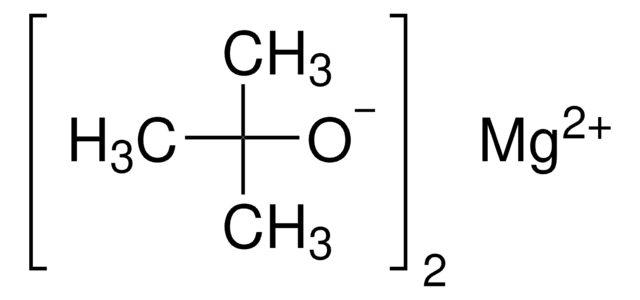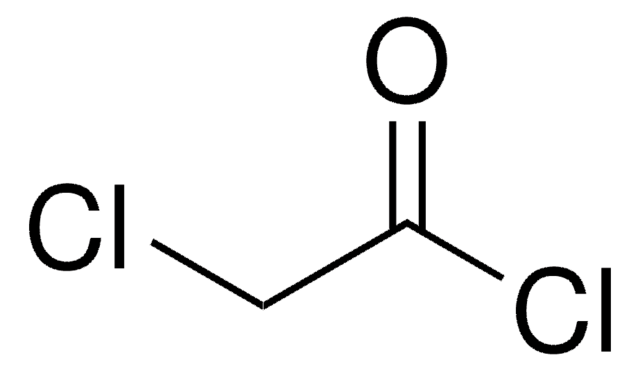335657
Magnesium methoxide solution
6-10 wt. % in methanol
Synonym(s):
Magnesium dimethanolate, Magnesium dimethoxide, Magnesium methanolate
About This Item
Recommended Products
Quality Level
form
liquid
composition
Mg, 5.5-10.5% EDTA titration
reaction suitability
core: magnesium
concentration
6-10 wt. % in methanol
refractive index
n20/D 1.3381
density
0.816 g/mL at 25 °C
SMILES string
CO[Mg]OC
InChI
1S/2CH3O.Mg/c2*1-2;/h2*1H3;/q2*-1;+2
InChI key
CRGZYKWWYNQGEC-UHFFFAOYSA-N
Looking for similar products? Visit Product Comparison Guide
Application
Signal Word
Danger
Hazard Statements
Hazard Classifications
Acute Tox. 3 Dermal - Acute Tox. 3 Inhalation - Acute Tox. 3 Oral - Eye Dam. 1 - Flam. Liq. 2 - Skin Corr. 1B - STOT SE 1
Target Organs
Eyes
Storage Class Code
3 - Flammable liquids
WGK
WGK 3
Flash Point(F)
46.0 °F - closed cup
Flash Point(C)
7.77 °C - closed cup
Personal Protective Equipment
Regulatory Listings
Regulatory Listings are mainly provided for chemical products. Only limited information can be provided here for non-chemical products. No entry means none of the components are listed. It is the user’s obligation to ensure the safe and legal use of the product.
EU REACH Annex XVII (Restriction List)
Choose from one of the most recent versions:
Already Own This Product?
Find documentation for the products that you have recently purchased in the Document Library.
Customers Also Viewed
Our team of scientists has experience in all areas of research including Life Science, Material Science, Chemical Synthesis, Chromatography, Analytical and many others.
Contact Technical Service



















